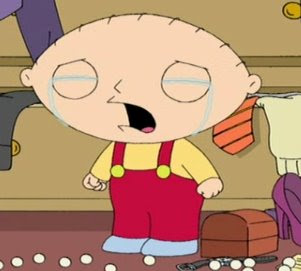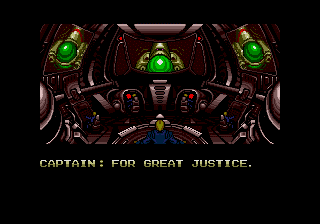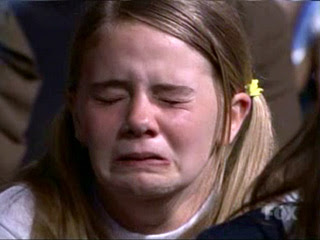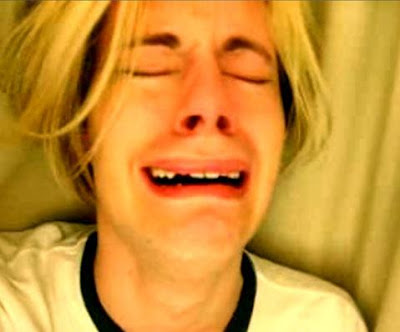They Say That Girl You Know She Acts Too Tough Tough Tough: Diana Turns Off The Lights
/![]() This probably won't come as a surprise to anyone, but I've decided to step away from mainstream comics for a while. Sadly, that also means bowing out of the Savage Critics.
Why, when and what next: after the jump.
I love comics. I think they're capable of telling stories in ways no other medium can. Regardless of cultural stigmas, I've always believed comics are as legitimate a form of literature as the novel. And even though we lose a little ground every time Joe Quesada talks about genies or Dan DiDio does another '70s revival, we're still better off now than we were ten or twenty years ago.
This probably won't come as a surprise to anyone, but I've decided to step away from mainstream comics for a while. Sadly, that also means bowing out of the Savage Critics.
Why, when and what next: after the jump.
I love comics. I think they're capable of telling stories in ways no other medium can. Regardless of cultural stigmas, I've always believed comics are as legitimate a form of literature as the novel. And even though we lose a little ground every time Joe Quesada talks about genies or Dan DiDio does another '70s revival, we're still better off now than we were ten or twenty years ago.
My very first comic was a TPB of the Dark Phoenix Saga. I was fascinated by the characters, the drama, the action. That's when I became a fan of Marvel in general and the X-Men in particular, but it's also the book that introduced me to the concept of shared universes in fiction. If you recall, Dark Phoenix's escape from Earth is accompanied by a series of cameos, and to a 14-year-old newbie this is what it looks like: a stone giant comes rushing out of the shower, a guy in a spider-costume gets worried, and someone calling himself the Silver Surfer's flying around at the edge of space. You don't know who these people are, as they're not part of the story and only serve to indicate that Jean's transformation is a Very Big Deal Indeed... but these cameos also tell you that there are other stories happening at the same time, in the same world.
But it's the shared universe that's been steadily turning me off comics over the past two or three years. The problem, in my eyes, is that instead of having a wide and diverse selection of stories set in the same fictional universe, what we've been getting since CIVIL WAR is a single narrative that dictates the tone and agenda for the overall universe; the end result is that DARK REIGN makes me think of that Black Eyed Peas song where they keep repeating that tonight's a good night. It's dull, it's repetitive and it's uninspired. And it's everywhere.
Don't get me wrong, I'm not advocating a return to Silver Age wackiness. In fact, as an act in an ongoing narrative, the occasional dark turn can serve as very fertile ground for stories - look at how the New Caprica arc changed BATTLESTAR GALACTICA. Admittedly, it wasn't exactly The Reading Rainbow prior to that, but the point still stands. What we've been getting since 2006, though, is an endless slog through poorly-written political allegory and blatant writer's fiat: why Norman Osborne? Because Brian Bendis thinks he's swell. The mentality seems to be "Oh, you don't like Norman Osborn in Thunderbolts? Maybe you'll like him in X-Men. No? Maybe you'll like him in Agents of Atlas." Right now Norman Osborn's like sand after a visit to the beach: no matter how careful you are, it'll get into uncomfortable places and nothing less than a very long, very thorough shower will set things right.
And it's not like DC is doing any better. Admittedly, I've never been as invested in the DCU as I am its counterpart, but even I can tell you this much: I was in the first grade when Barry Allen died. I don't understand why I should see him as the Greatest Flash Ever just because Geoff Johns says so.
Which leads me to what I consider the source of the problem: both Marvel and DC are currently being run by a very specific breed of fanboy, the type that fixates on the specific period when they were reading comics. And rather than try to move forward, they spent all their time recreating that past over and over again, to perpetually diminishing effect. Looking back instead of looking forward, and making more and more outrageous leaps to get there (ie: Peter Parker selling his marriage to Satan so good old Aunt May can keep on keeping on). This mindset has become so pervasive that I can't even get worked up about the Flop of the Week anymore - Onslaught's back? Whatever. They're doing the Clone Saga again just to remind everyone how badly they messed it up the first time? Eh. The X-Men have moved again? Why get worked up about it? They'll end up somewhere else next year.
The last straw for me - what finally prompted me to make like Fred Astaire and Call The Whole Thing Off - is how it's getting progressively difficult to sidestep the Big Events. To use a specific book as an example, I've been reading DAREDEVIL consecutively since the start of the Bendis run. In eight years, I never had to deal with HOUSE OF M or CIVIL WAR or SECRET INVASION: it was a self-contained, consistent story that worked on its own merits without having other ideas imposed upon it. Then Andy Diggle takes the reins and guess who turns up in his very first story?
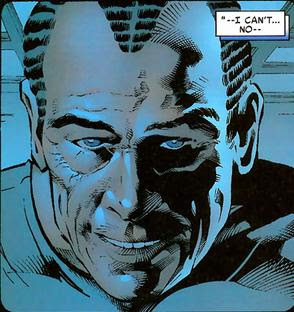
This guy.
So... yeah. That's it for me, at least until the current trends burn themselves out. I leave you, dear readers, with this final thought: there's been a lot of talk regarding Disney and Warner, and as the brilliant It'sJustSomeRandomGuy points out, it's quite possible that both companies will become actively involved in the publishing of comics, right down to content. Under any other circumstances, I'd be very much opposed to the idea of corporate shareholders imposing creative restraints on any story... but the more I think about it, the more convinced I am that they really can't make things much worse. And who knows, maybe someday I'll enjoy comics again and come banging on Hibbs' door like Fred Flintstone trying to get back in.
Speaking of which, I want to thank Brian for offering me this opportunity, Jeff for making me think, Graeme and Abhay for making me laugh, Paul O'Brien for being my inspiration and all the other Savage Critics just for being your awesome selves. And, of course, our readers, because if a Critic falls in the forest and no one's around to hear her, does she make a sound?
Until the Watcher admits to watching Desperate Housewives, Make Mine Savage!


